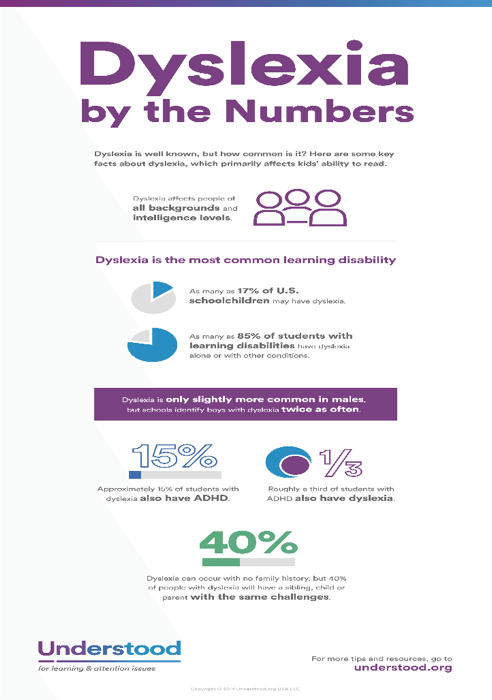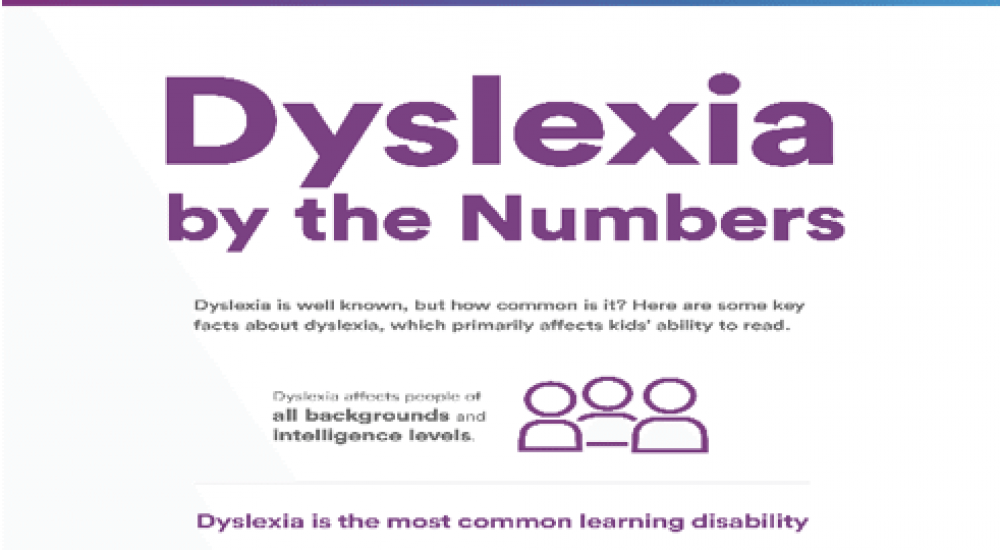1 in 5 children have dyslexia, a specific learning disability that impacts language processing (speech, reading, and writing).
While this is something that impacts the lives of the children in our programs, it is something that doesn’t often get covered in teacher or youth worker training programs. As the mother of a child with dyslexia, I have picked up a few tips and hints that I typically pass on to teachers and staff at the beginning of the year. I figured October being Dyslexia Awareness Month was a great time for me to share some of my collection.
(Please note, I am not a doctor, specialist, or expert in this area, I am just a mom who has been collecting resources for many years. This information is not meant to be used to diagnose but to be used to help staff when working with a child with dyslexia or other language-based learning disability.)
 What is Dyslexia: This video from the Dyslexia Training Institute, they have a lot of resources and information on supporting children with dyslexia. I have found this video to be helpful in giving a quick understanding of dyslexia.
What is Dyslexia: This video from the Dyslexia Training Institute, they have a lot of resources and information on supporting children with dyslexia. I have found this video to be helpful in giving a quick understanding of dyslexia.
Sophia’s Fight Song: This is a quick video from the perspective of a 5th-grade girl with dyslexia. Sophia captures her experiences and gives great recommendations for how to support her in a classroom.
Decoding Dyslexia: A network of parents leading a grassroots movement for advocacy and support for their children. You can check out the main site that will take you to your state’s webpage for information specific to your community.
Yale Institute for Dyslexia and Creativity: One of the first books I listened to about dyslexia was Dr. Sally Schawitz’s Overcoming Dyslexia. She and her husband are some of the leading experts and advocates in this area. The website has resources for parents, educators, and advocacy.
There are many things you can do in your program to support children with dyslexia. Some of the accommodations may apply to homework and academic support while others can be used throughout the program.
Giving “think time” (approximately 10 seconds).
In an academic setting, this means giving a child a bit of time before having them respond to a question. Think time is also needed when playing certain games. Games like Spot it or other quick identification games may require some thinking time to make it inclusive.
Letting children dictate written responses.
In addition to posing a challenge with reading, dyslexia can also impact writing and spelling.
Reading instructions and content verbally to the child.
Yes, it may take more time to have someone read a child’s homework assignments to them but it helps increase the completion and accuracy while decreasing frustration”. This impacts more than just homework as many games or projects also come with written instructions.
Provide reading material in audio format.
This allows children to follow along and keep up with grade level comprehension and develop a love of books. We call this “ear-reading” in our house. Some people may view this as “cheating” but it is not. There is a difference in reading fluency and reading comprehension and why to let fluency stand in the way of comprehension when it can be done another way. See this article for more information on the balance of ear and eye reading.
Identify the child’s strengths.
Dyslexia comes with what Dr. Schawitz’s calls a “sea of strengths”, the creative and critical thinking skills strengths, that surround the one area of weakness. For my child, his strengths are math, creativity, and sense of humor that won’t stop.
Use of a computer to support assignment or project completion.
Typing is easier than handwriting, and speech to text is even better as the mechanics of writing no longer hold up the process. Chrome has quite a few extensions and apps to support people with Dyslexia. Speakit, Readability, and Open Dyslexic Font are three that we have found helpful.
Adding literature that has characters with dyslexia as a role model or someone to connect with.
Percy Jackson is probably the first one to come to mind. Henry Winkler, who has been very open about his dyslexia, has a children’s book series titled Hank Zipzer. Looking for Heroes: One Boy, One Year, 100 Letters by Aidan A Colvin is a nonfiction collection of letters Colvin sent to and received from successful people with dyslexia.
While this post is primarily about working with children with dyslexia, dyslexia isn’t something that is outgrown.
Children with dyslexia become adults with dyslexia who may also need accommodations, think time, and resources to do their best work. I am looking forward to seeing your comments on social media as I hope you find this information helpful. Please – if you have additional resources, ideas, and information, share that too.
For breakfast, I had a chocolate peanut butter protein shake while writing this piece.
Author Profile: @eppispeppy
